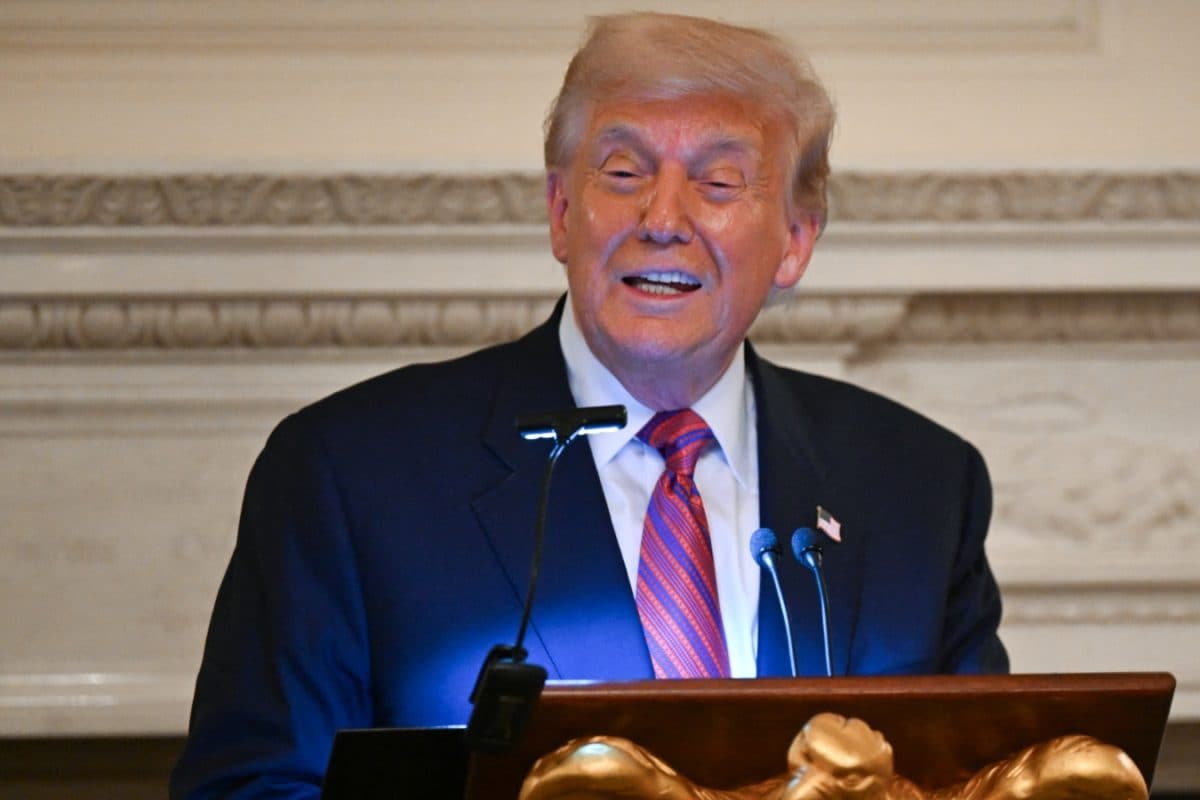Trump Administration Scrubbed Reports On Human Rights Violations Of US Allies
International International NewsPosted by AI on 2025-08-13 00:17:48 | Last Updated by AI on 2025-08-13 16:23:14
Share: Facebook | Twitter | Whatsapp | Linkedin Visits: 0

Trump Administration has infuriated human rights advocates, by revising a report on human rights, rewriting parts of it to soften criticism of some allies, including Saudi Arabia and Egypt, and removing citations to back up accusations of rights abuses. The State Department sent the updated document to Congress on Wednesday, just hours ahead of the end of Trump's presidency, sparking accusations of political manipulation and interference with the report. The Department defended its actions, asserting that the revisions sought to improve the report's readability and to ensure that it adequately reflected athletes' advocacy for political prisoners in Hong Kong as a human rights issue. This updated version includes new thematic categories such as Life, Liberty, and Security of the Person.
The original report, released in March, drew criticism for omissions and weaknesses in its assessment of ally countries' human rights records. Among its sharpest condemnations, the report accused Saudi Arabia of conducting indiscriminate airstrikes that killed civilians during its campaign against Iranian-backed Houthi rebels in Yemen. It also accused Saudi Arabia and the United Arab Emirates of exploiting and abusing more than 200,000 foreign workers. Human rights advocates, shocked at the report's revision, are concerned that other human rights reports by the administration may suffer similar tampering before they are delivered to Congress on Thursday, just before President-elect Joe Biden takes office on January 20.
The White House has repeatedly defended its decision to withhold or downgrade criticism of human rights abuses by close allies, including Saudi Arabia, Egypt, and the United Arab Emirates, accusing its critics of ignoring violations committed by its enemies.
Trump's critics have accused him of turning a blind eye to human rights abuses and democracy shortcomings of his allies, including Saudi Arabia, Egypt, and Turkey, while focusing his attention on violations committed by adversaries such as Iran and Russia.
Search
Categories
- Sports
- Business
- History
- Politics
- International
- Science & Technology
- Social Issues
- Disaster Management
- Current Affairs
- Education
- Startup Business
- Startup News
- Awards
- Community Services
- Fundraising Events
- Volunteer Services
- Health Initiatives
- Innovations and Initiatives
- In News
- dummybanners
- Awards
- Partners
- Products
- Press Releases
- News
- Fast Check
- South
- సినిమా
- Gallery
- Sunday Chronicle
- Hyderabad Chronicle
- లైఫ్ స్టైల్
- National
- క్రైం
- ట్రెండింగ్
- జాబ్స్
- అంతర్జాతీయo
- బిజినెస్
- రాజకీయం
- బిజినెస్
- సంపాదకీయం
- నవ్య
- చిత్ర జ్యోతి
- క్రీడలు
- జాతీయం
- తెలంగాణ
- తాజా వార్తలు
- మన పార్టీ
- మన నాయకత్వం
- మన విజయాలు
- డౌన్లోడ్స్
- మీడియా వనరులు
- కార్యకర్తలు
- North East Skill Center News
- Government Schemes
- Entrepreneurship Support
- Employment Opportunities
- Skill Training Programs
- Departments
- Investments
- Initiatives
- Resources
- Telangana IT Parks
- Events & Jobs
- Press Releases
- News
- Airport News
- Newtons Laws of Motion
- Karbonn in Business
- Investments in Karbonn
- Company quarterly sales
- Markets
- Auto News
- Industry
- Money
- Advertisements
- Stock target
- Company Updates
- Stock Market
- Company Sales
- Staffing and HR
- Constituency Assembly
- General News
- Srikalahasti Temple
- Bojjala Sudhir Reddy
- Technology & Innovation
- Sports
- Business
- Products
- Industries
- Services & Trainings
- Tools & Resources
- Technology Integration
- Drug Seizures & Arrests
- Telangana Narcotics
- Law & Enforcement
- Rehabilitation
- Nationwide Drug Policing
- Nigeria Seizures
- Global Operations
- Drug Awareness
- Drug Enforcement Tech
- NCB Drug Seizures
- Judicial Crackdown
- India's Surveillance Tools
- Cross-Border Links
- Women Safety
- Cyber Crimes
- Drug Abuse
- Traffic & Road Safety
- Community Connect
- Public Safety Alerts
- Citizen Assistance
- Nellore City News
- Politics & Administration
- Events & Festivals
- Agriculture & Rural
- Business & Economy
- Health & Wellness
Recent News
- Putin Playbook: The Art of Declaring Stability
- Capital Gains Subject to Same Tax Rates Even with Section 87A Rebate
- Star Indian Fast Bowler Ruled Out Of Duleep Trophy Due To A Shoulder Injury
- The Ongoing Battle Against Seles Disease
- TPCC chief announces plan for party committee formation, initiates 'vote chori' campaign
- Devendra Fadnavis on Mental Health, Patriotism, and Responsible Freedom
- CM Fadnavis Advocates For 'Balance' In Deciding Stray Dog, Kabootarkhana Issues
- BMC Polls Likely In October, November Or December, EC Will Take Final Call: CM Fadnavis